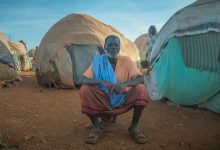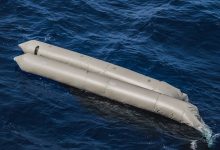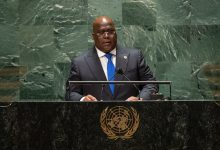Completion of Somalia elections more important than ever: UN envoy
 Although progress has been made in Somalia’s electoral process, it has been slow and uneven, the UN Special Representative for the country said in a briefing to the Security Council on Wednesday.
Although progress has been made in Somalia’s electoral process, it has been slow and uneven, the UN Special Representative for the country said in a briefing to the Security Council on Wednesday.
James Swan welcomed completion of the indirect elections for the Upper House of Somalia’s Federal Parliament, which began in July, and the start of those for the lower chamber, known as the House of the People.
While 14 women will be among the 54 Senators in the Upper House, representing 26 per cent of parliamentarians there, Mr. Swan said this figure falls short of the 30 per cent quota for women’s participation.
Redouble efforts
Mr. Swan urged stakeholders to move quickly to conclude the lower house elections before the end of the year.
“Although progress is being made, the efforts of Somalia’s political leaders will need to be redoubled in the coming weeks to bring the elections for the Federal Parliament to a successful conclusion, so that the presidential elections can then be held as soon as possible,” he said, speaking via videoconference.
“The completion of these elections is more important than ever, so that all effort can return to the key governance, security, and development priorities in Somalia.”
Supporting women’s representation
The envoy said the UN will continue its engagement and support towards advancing the indirect polls, with clan representatives electing parliamentarians who will then vote for the president.
Only two of the 275 seats in the lower house have been filled so far, and 30 per cent are also reserved for women.
“We continue to stress that women’s full inclusion and representation in political life, and in all sectors of life, is key for Somalia’s sustainable peace and development,” said Mr. Swan.
Somali women’s rights activist Asha Abdulle Siyad, who also addressed the Council, has been among those advocating for the 30 per cent quota.
“We are deeply concerned of the delays and the lack of concrete measures and schedules for the completion of the House of the People election,” said Ms. Siyad, Executive Director of the Somali Women’s Leadership Initiative.
“Further delay in the election is likely to affect women’s quota negatively as the attention of all concerned, including the international community will be focused on the urgent completion of the election, regardless of its outcome.”
Al-Shabaab attacks increase
Meanwhile, the terrorist group Al-Shabaab remains a serious threat to security in Somalia.
Nearly1,000 civilians have been killed or injured in armed conflict so far this year, with the group responsible for some two-thirds of civilian casualties.
Mr. Swan paid tribute to the Somali security forces and troops serving with the African Union (AU) mission in the country, AMISOM, who face Al-Shabaab on a daily basis.
AMISOM chief Francisco Caetano Jose Madeira told ambassadors the militants have stepped up attacks, ambushes, suicide bombings and targeted assassinations of government officials.
“In addition, and of late, Al-Shabaab’s effort is increasingly and deliberately directed at disrupting the electoral process with attacks on some election centres, indirect fire attacks against AMISOM fortified bases, and increased public execution of individuals working with the Somali security forces and AMISOM personnel,” he said.
The mission’s mandate expires on 31 December and a plan to progressively transfer security responsibility from AMISOM to the Somali Security Forces is advancing, though slowly.
Mr. Madeira called for discussions on the new mission to be concluded as a matter of urgency, noting the talks cover issues such as enhanced coordination and cooperation, complementary approaches, sustained information sharing, and funding.



